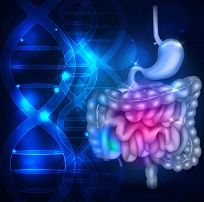Gastric Stem Cells a Theoretical Future Intestinal Treatment
Future treatment options for stomach ulcers, inflammatory bowel disease, and alcoholic liver disease can come from stem cell transplants, according to a series of new studies.

Future treatment options for stomach ulcers, inflammatory bowel disease, and alcoholic liver disease can come from stem cell transplants, according to a series of new studies from the journal Cellular and Molecular Gastroenterology and Hepatology.
In the first study, researchers tested ulcers in young and older mice to investigate how easily their ulcers were repaired using gastric stem cells. The stem cells isolated from young mice were transplanted into the stomachs of older mice and the researchers observed accelerated rates of repair in these cases. The researchers said these younger mice’s gastric stem cells further specialize into cells called SPEM and aid the healing process. The team believes this can be a powerful gastric injury treatment in the future, after they further look into if this process would be similar in human patients.
In another study, the investigators aimed to determine the actual role of the gut microbiome in inflammatory bowel disease. They wrote that most of the research into this topic is often focused on stool based analysis instead of centering on mucosal surfaces like inside the intestinal lining. The researchers reviewed colon lining samples of healthy subjects and those with either Crohn’s disease or ulcerative colitis to determine whether the levels of microbial populations were similar across six separate regions of the colon. They believe that considering the microbiome as one environment is less effective than viewing the microbiome as a “mosaic composed of networks” reflecting the whole environment. They believe this will positively influence therapeutic strategies in the future.
For the third study, researchers demonstrated that an alcohol consumption byproduct called acrolein is increased with the increase in the intake of fatty acids. This, in turn, creates some of the damaging effects of alcohol on the liver in alcoholic liver disease. The researchers showed that using hydrazine, which they described as an “acrolein scavenger” in clinical uses, protected mice models from the damaging effects of alcohol in the liver. They believe that hydrazine or similar drugs could be a good option for future therapies in acute alcoholic liver disease cases.
Related Coverage:
Gut Microbiota and Obesity Unrelated After All?
Liver Failure Deaths Continue to Rise in US
Intestinal Stem Cell Behavior May Impact Inflammatory Bowel Disease Treatments